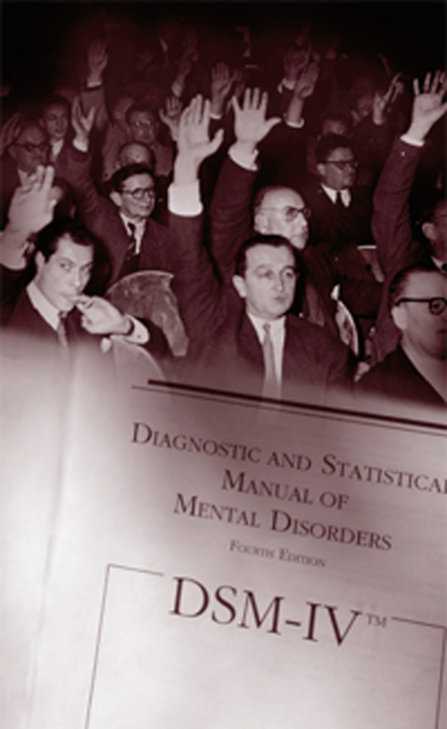
-
HOME
-
WHAT IS STANDOur Mission Our Values Our Help Contact
-
WHAT WE FIGHT FORReligious Freedom Religious Literacy Equality & Human Rights Inclusion & Respect Free Speech Responsible Journalism Corporate Accountability
-
RESOURCESExpert Studies Landmark Decisions White Papers FAQs David Miscavige Religious Freedom Resource Center Freedom of Religion & Human Rights Topic Index Priest-Penitent Privilege Islamophobia
-
HATE MONITORBiased Media Propagandists Hatemongers False Experts Hate Monitor Blog
-
NEWSROOMNews Media Watch Videos Blog
-
TAKE ACTIONCombat Hate & Discrimination Champion Freedom of Religion Demand Accountability
Scientology Empowerment Versus Psychiatric Destruction
In 1973, the nearly 10,000 delegates to the American Physics Society’s annual convention were asked to vote on whether they believed in gravity, and whether it should continue to be classified as a Fundamental Force of Nature. The vote was prompted by complaints from the Flat Earth Society, who believed that a giant, unseen turtle was sitting on creation, keeping everything in place. Sixty-one percent of the physicists voted yea; thirty-nine percent voted nay. Gravity was saved.
Relax. The above didn’t really happen.
But the following did:

In 1973, the nearly 10,000 delegates to the American Psychiatric Association annual convention were asked to vote on whether they believed homosexuality was a form of mental illness. The vote was prompted, in part, by “exponentially increasing pressure from the advocates of homosexuality.” Sixty-one percent of the psychiatrists voted nay; thirty-nine percent voted yea. Homosexuality as a mental illness was discarded.
It was of course long past the time to remove the stigma of mental illness from the gay community. It is not the end result that’s at issue, it’s the process. If the gay community’s right to life without stigma can be granted by a majority vote of psychiatrists responding to outside influence, can those rights not also be taken away by the same process?
In fact, that has happened. Recently the Indonesian Psychiatric Association, presumably subject to different pressures, voted independently to classify homosexuality as a mental illness, prompting strong protests from the American Psychiatric Association.

I can see it now—Indonesian and American physicists in a catfight over which direction an apple takes when it falls from a tree. Maybe they should vote on it.
Alas, poor scientific method, we knew you well.
The point I’m making is that if there really were a reasoned, scientific method underpinning the beliefs of psychiatry, we would not see decisions being made based on the latest iteration of social acceptability, and we would not see two disparate groups of psychiatrists simultaneously espousing opposite opinions, each as clinical truth.
Dr. David Kupfer, chairman of the committee that most recently rewrote the inventory of psychiatric disorders, lamented that psychiatry does not “yet have the biological and genetic biomarkers that we are hoping [for].” Instead, “Cultural norms … are taken into account.” Indeed, when compiling the inventory, public input was solicited.
Has it come to this—scientific progress measured by the number of likes on Facebook?
This “beauty contest” process gave us 15 new mental illnesses for which psychiatric drugs may be prescribed—including caffeine withdrawal and skin-picking. Meanwhile, pedophilia only made the list with qualifications, and rape compulsion, hebephilia (sexual preference for early adolescent children), and sex addiction failed to make the list at all.
Far more serious, apparently, is “phone addiction,” i.e., excessive use of one’s smartphone, one of the newest mental illnesses. Let’s compare the symptoms of “phone addiction” to the effects of its anticipated remedy, that psychiatric catholicon (panacea), antidepressants:
Antidepressant Effects Include: |
|
|---|---|
A need to use the cell phone more and more often to achieve the same desired effect. |
To combat loss of effectiveness, “solutions include increasing the dose.” |
Has put a relationship or job at risk due to excessive cell phone use. |
|
Turns to cell phone when experiencing unwanted feelings such as anxiety or depression. |
|
Persistent failed attempts to use cell phone less often. |
Withdrawal from antidepressants may require further antidepressants to combat withdrawal symptoms. |
|
Withdrawal Symptoms from your Phone Include:
|
Withdrawal Symptoms from Antidepressants Include: |
If the above seems arbitrary, you are not alone. The British Psychological Society criticized the psychiatric inventory as “clearly based largely on social norms, with ‘symptoms’ that all rely on subjective judgements… reflect[ing] current normative social expectations.”
The question is, WHOSE cultural norms and social expectations is psychiatry catering to?
The most extreme answer to this can be seen in nations where institutional psychiatry has long been used as a tool of the political power structure to nullify opposition.
In the 1960s , we had a vision of amorphous evil called “the Establishment.” Its sin was the protection of existing corrupt beliefs and power structures and active hostility to all things new.
Isn’t that the embodiment of psychiatry?
In other words, psychiatry seeks to numb or destroy Man’s moral fiber; Scientology seeks to empower it. Therein lies the conflict, and the differences are as great as night and day.
Like children rummaging through old clothes in the attic, psychiatrists love to dress up their biases and opinions in the fineries of science. In the past, they have condemned comic books as creating juvenile delinquency and decried rock and roll as “a communicable disease.” So today, if using your smartphone is a cause for disapproval, what of a new religion that declares that Man is good, Man is at his best when he is powerful and responsible, and above all that Man is a spirit, not a biochemical reactor?
No, for 68 years psychiatrists have felt threatened by Scientology, and a psychiatrist who believes his authority is threatened is liable to feel anger, tension, depression, irritability, restlessness…
Mankind’s history has admittedly been a morass of morality imposed by whips, chains and executioners. Psychiatry seeks to solve this through the “eventual eradication of the concept of right and wrong.” Scientology seeks to solve this by restoring to the individual his power of self-determinism, with the strength, wisdom, and goodness to comfortably know and make his own decisions.
In other words, psychiatry seeks to numb or destroy Man’s moral fiber; Scientology seeks to empower it. Therein lies the conflict, and the differences are as great as night and day.
Ask me to vote on that one, and you know which way I’ll go. Thankfully for Mankind, more people are voting with us every day.









